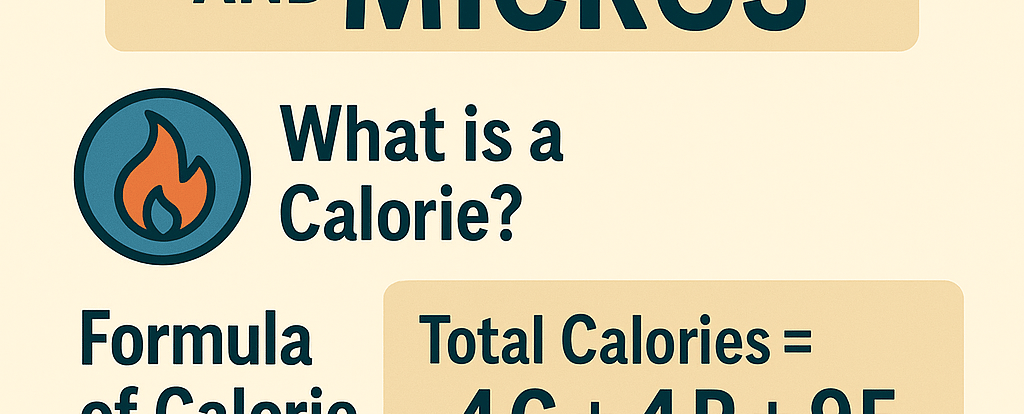Understanding Calories, Macros, and Micros
We decode the science behind calories, macronutrients, and micronutrients to help you make informed choices about your diet. Learn what calories are, how they’re calculated, and why they matter for energy and metabolism. Dive into the essentials of macronutrients (carbohydrates, proteins, and fats) and micronutrients (vitamins and minerals) to understand their roles in fueling your body and maintaining health. Discover how a balanced approach to calories, macros, and micros can empower your journey toward a healthier, more vibrant lifestyle. Stay tuned for practical tips, formulas, and expert insights!
NUTRITION
5/2/20252 min read


Welcome to NaatiBru's Nutrition Blog, where we decode the science behind calories, macronutrients, and micronutrients to help you make informed choices about your diet.
Learn what calories are, how they’re calculated, and why they matter for energy and metabolism. Dive into the essentials of macronutrients (carbohydrates, proteins, and fats) and micronutrients (vitamins and minerals) to understand their roles in fueling your body and maintaining health.
Discover how a balanced approach to calories, macros, and micros can empower your journey toward a healthier, more vibrant lifestyle. Stay tuned for practical tips, formulas, and expert insights!
---
### What is a Calorie?
A calorie is a unit of energy. It measures the amount of energy your body gets from the food and drinks you consume or the energy it expends during physical activity. Calories fuel every bodily function, from breathing to exercising.
---
### How is a Calorie Calculated?
Calories in food are determined based on the energy provided by macronutrients:
* Carbohydrates: 4 calories per gram
* Proteins: 4 calories per gram
* Fats: 9 calories per gram
For example, if a food contains:
* 10g of carbohydrates = 40 calories
* 5g of protein = 20 calories
* 2g of fat = 18 calories
Total Calories = 40 + 20 + 18 = 78 calories
---
### The Formula of Calories
To calculate the total calories in a meal:
$$
\text{Total Calories} = (\text{Carbs in g} \times 4) + (\text{Protein in g} \times 4) + (\text{Fat in g} \times 9)
$$
For individuals, the daily calorie requirement depends on factors like age, gender, weight, activity level, and health goals.
---
### What are Macronutrients?
Macronutrients are the primary nutrients your body needs in large amounts for energy and structural functions:
1. Carbohydrates
* Source of quick energy.
* Found in grains, fruits, vegetables, and dairy.
2. Proteins
* Essential for muscle repair and growth.
* Found in meats, beans, dairy, and nuts.
3. Fats
* Needed for brain health, hormone production, and long-term energy.
* Found in oils, avocados, nuts, and fatty fish.
---
### What are Micronutrients?
Micronutrients are vitamins and minerals required in smaller quantities to support various bodily functions:
1. Vitamins
* Water-soluble (e.g., Vitamin C, B-complex)
* Fat-soluble (e.g., Vitamins A, D, E, K)
2. Minerals
* Major minerals (e.g., calcium, potassium)
* Trace minerals (e.g., iron, zinc)
These nutrients help in processes like immunity, bone health, and cellular repair.
---
### Balancing Calories, Macros, and Micros
Achieving a balanced diet involves:
* Meeting your daily calorie needs based on your activity level.
* Ensuring the right proportion of macronutrients (e.g., 50% carbs, 30% fats, 20% protein).
* Incorporating a variety of foods to meet your micronutrient requirements.
---
Stay tuned for more insights into creating a well-rounded, nutrient-rich diet at [**NaatiBru**](https://www.naatibru.com). Let’s unlock the power of food to energize and sustain your life!
